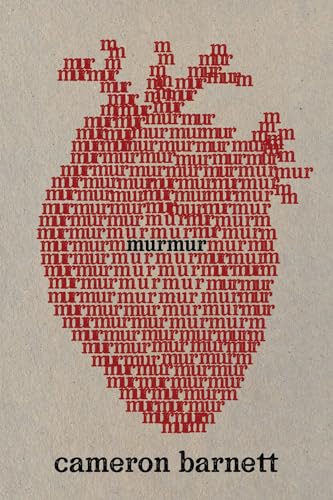Part Ⅲ: The N-Word “One should never say the N-word to a white audience.” —Nobody. . . Nigga, say nigga all the timeSay nigga to the left, and nigga to the rightSay nigga like you’re playing Simon Saysand you can’t move unless somebody says niggaSay nigga to the old lady in the front like you’re spilling some big secretSay nigga to the old man in the back like you just spilled his big ass secretSay nigga top to bottom like you patting down the audiencebefore you let them hear the rest of the poemSay nigga like you’re counting jumping jacks—one nigga, two nigga, three nigga, four . . .Say it to the ceiling like you want the roof to hear itand if the roof ain’t listening say it to the floorlike you want your dead homie to hear it down belowThen say nigga as if your dead homie down there came backand you only get one word to share with himSay nigga till your bones get hotSay nigga like you’re making a bonfireSay nigga like you’re starting a firewith nothing but the bones of dead homiesSay nigga like rain on a roof, the one that ain’t listeningSay nigga to the twelve-year-old who ain’t looking at you’cause his phone is in the way and say nigga to his fatherwho’s thinking twice about bringing his kid to your readingAnd once you’ve said nigga to every white person in the room,say nigga to the only other nigga therethe way you’d tell your mother you love herAnd don’t be alarmed when the well-meaning man in his seventiessays to you “your poems are good but I’m just tired of Black poetsmaking me feel bad about slavery and Jim Crow”Remember, he’s “well-meaning”—help him feel Jim Crow another way—invite him up to the mic—help him feel slavery like he hasn’tfelt it before—wrap the cord over his shoulders,down his collar, loop it like a necktie and dangle itby his mouth then say it with him—nigga—and if he hesitatespull the cord tighter and say it with him—nigga—and if he stammersloop the cord again and whisper in his ear—nigga—and if he squirmspull the cord tighter till he says it, tighter still until he feels itin his bones—nigga—and when he gets hot enoughstart a fire, nigga
Reading Black Poems to White Audiences: A How-To Guide
Feature Date
- May 9, 2024
Series
Selected By
Share This Poem
Print This Poem
“Reading Black Poems to White Audiences: A How-To Guide” from MURMUR: by Cameron Barnett.
Published by Autumn House Press in February 2024.
Copyright © 2024 by Cameron Barnett.
All rights reserved.
Reproduced by Poetry Daily with permission.

Cameron Barnett is a poet and teacher from Pittsburgh. He is the author of The Drowning Boy’s Guide to Water, the winner of the Autumn House Press Rising Writer Prize and a finalist for an NAACP Image Award. He is a graduate of Duquesne University and earned an MFA in creative writing from the University of Pittsburgh. Other honors include a 2019 Carol R. Brown Creative Achievement Award for Emerging Artist and serving as the ’22-’24 Emerging Black Writer in Residence at Chatham University. Cameron teaches at his middle school alma mater, Falk Laboratory School. His work explores the complexity of race, place, and relationships for Black people in America.
"Open Murmur and be prepared for its thoughtfully crafted forms, sparkling enjambments, and searingly true lines. It is clear why Barnett’s first book made him an NAACP Image Award Finalist and why this one cements him as a voice of his generation calling attention to the 'fear, like too many Black men, that a heart is not enough / to keep me alive.'"
—Pittsburgh Post-Gazette
"Cameron Barnett’s Murmur is in fact a glorious shout. These poems shake up histories, both intimate and political. They stir and disturb the ways we look at love, at race, at our people and ourselves. A bold, beautiful, and brilliant collection!"
—Deesha Philyaw, author of The Secret Lives of Church Ladies
"Cameron Barnett’s collection Murmur is simply stunning—simultaneously expansive, inventive, and intimate. . . . It urges us to center the corners, the ghosts, the murmurs, the stories, and the sights that live, breathe, and are essential if we want to have fullness of heart. An excavation of things forgotten, and both unremembered and misremembered, Barnett’s poems remind us that 'sometimes flecks in the corners . . . are more than aberrations.' With poems spanning histories, both personal and collective, and poems that center Blackness as a site of joy, promise, pain, and possibilities, these poems compel us toward knowledge we are deeply implicated in. Using the heart, its murmur, and ghosts as a connective thread, Barnett’s poems require us to listen to 'our hauntings,' as they tell us in lyrical language and form 'how to give . . . ghosts a home' because 'the silence of ghosts becomes a lesson.' This is a collection to revel in, to read, and to return to again and again. Barnett invites us to listen for the magnitude of stars and intimacy of histories still being made. I found myself breathless as I kept reading for the murmurs within and without."
—M. Soledad Caballero, author of I Was a Bell
Poetry Daily Depends on You
With your support, we make reading the best contemporary poetry a treasured daily experience. Consider a contribution today.




